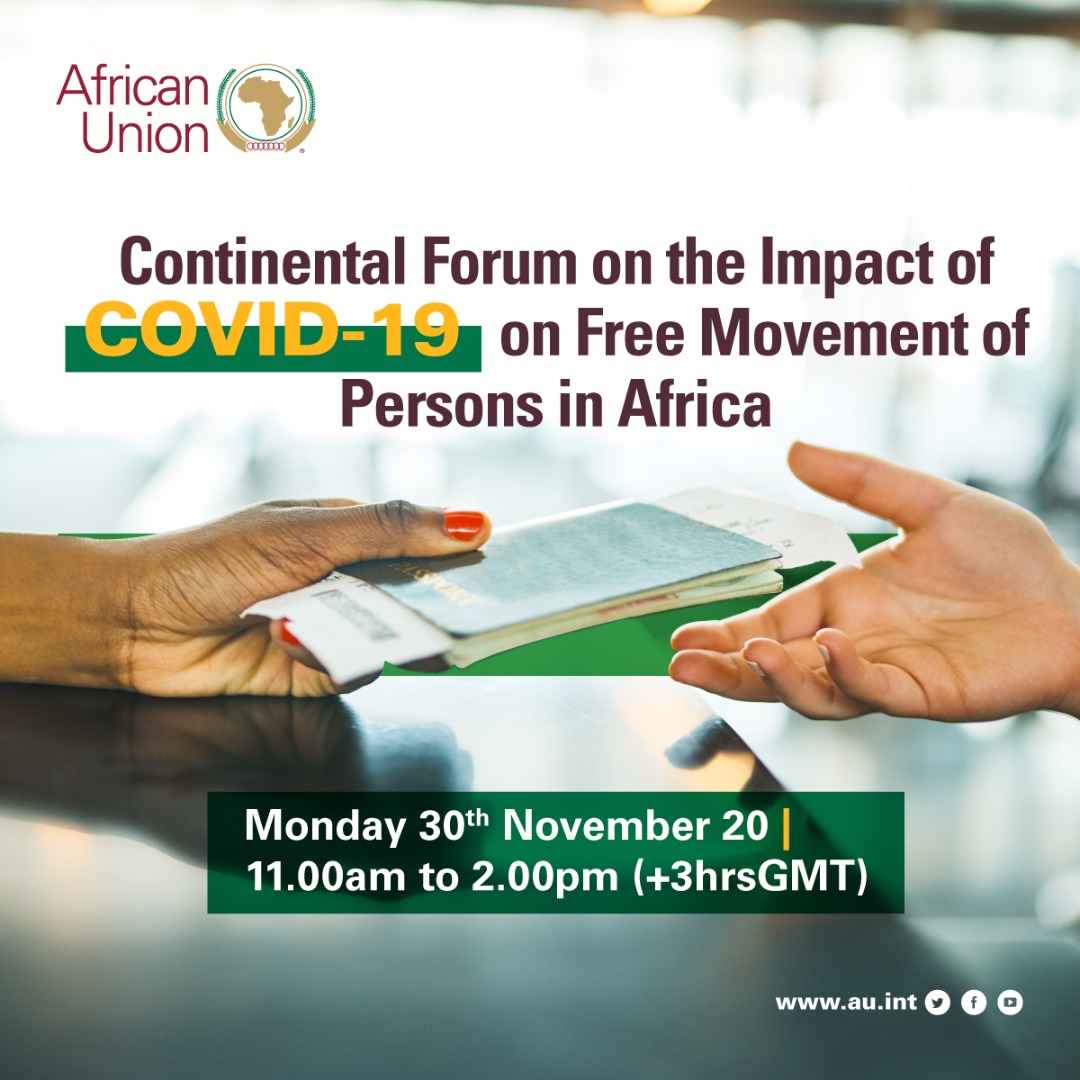The year 2020 has been one of the most challenging times to movement of persons in the entire world due tothe corona virus that has endangered the human species.
In a bid to curb the rapid spread, all countries in the world, took measures to curb the spread of the virus and some of these measures included quarantine and isolation measures, closure of public spaces, closure of borders, airports and instituted measures for only frontline workers and essential services. In some countries, it necessitated partial and even total lockdown.
In practical terms, this meant the paralysis of most means of transport by air, sea and land in a bid to curb or at least slow the spread of the virus through cross border interactions. With time, there has been some progress with some countries re-opening fully while for others, it’s still on a slow-motion basis.
In 2018, the African Union in implementing its flagship project on free movement of persons in Africa and the African passport, adopted the Protocol to the Treaty Establishing the African Economic Communities relating to Right of Entry, Right of Residence and Right of Establishment; as well as adopted the Guidelines on the Production, and issuance of the African Passport. The Protocol provides for temporary closure of borders and denial of entry to individuals on health and security considerations. Therefore, the closures and limited access seen on the continent were not in contravention of the Protocol, but were not without challenges, which if not addressed could have long lasting implications on the Free Movement Agenda in Africa.
PURPOSE AND OBJECTIVES OF THE CONTINENTAL FORUM
The continental forum on Impact of COVID-19 on Free Movement of Persons in Africa is meant to:
• Bring all stakeholders (Member States, RECs, Partners, Civil Society, Private Sector, youth and common citizens among others) to exchange ideas, experiences and build synergy on collective efforts to enhance free movement of persons in Africa, and to do so safely amidst COVID-19;
• Provide a forum in which Member States and RECs can reflect on the effects of COVID 19 on free movement in their respective countries and regions and ensure measures/guidelines developed for ease of movement of persons and goods/services enhance movement of persons in Africa in safety.
EXPECTED OUTCOMES
By the end of the continental meeting on the Impact of COVID-19 on Free Movement of Persons in Africa the following would have been achieved:
• An understanding of how Member States and RECs manage free movement during the pandemic (challenges, opportunities and mechanisms put in place to ensure safety during movement);
• An understanding of the re-opening processes in different parts and suggestion on how they can be handled better.
Create synergies between free movement policies and practice, in the actual implementation of these normative frameworks and how they affect other relevant sectors such as the continental free trade area, the private sector and travel for the common citizen whose movement is affected by the pandemic
Event Website: Continental Forum on the Impact of COVID-19 on Free Movement of Persons in Africa | African Union (au.int)


